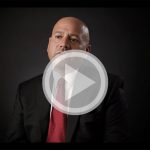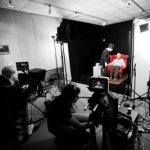Prof. Sandra Chafouleas is a Board of Trustees Distinguished Professor and Neag Endowed Professor in the Department of Educational Psychology within the Neag School of Education. She also serves as the founder and
Co-Director of the UConn Collaboratory on School and Child Health (CSCH).
Three New Haven teachers were chosen for the Noyce Math Teacher Leader Program, a five-year professional learning and service program intended to expand Connecticut’s capacity to advance more equitable mathematics education, according to the school district. Program partners include the University of Connecticut’s Neag School of Education and its College of Liberal Arts and Sciences Department of Mathematics, as well as the Connecticut State Department of Education.
In this UConn Foundation video, Neag School Dean Jason G. Irizarry talks about the mission of the Neag School, ongoing research efforts, future opportunities, student support, and more.
Connecticut Education Association President Kate Dias ’97 MS, 6th Year is focusing her attention on the educational workforce, and hopes the session will yield approvals of public acts addressing educators, namely better working conditions and recruitment and retention of teachers.
The group started reaching out to legislators weeks before the session, Dias says, offering itself as a resource for questions or topic temperature checks in advance of any bill packages that may come out over the next few weeks.
This week, we welcome Fany Hannon, Neag School alumna a director of the Puerto Rican/Latin American Cultural Center, which is celebrating its golden anniversary this year. Fany talks about how the Center emerged from the civil rights movement of the 1960s and 1970s, what it’s been like trying to keep a student-oriented organization running during a global pandemic, and why so many generations of Latinx Huskies consider PRLACC a home away from home.
“When someone feels like their rights are being violated or the government is overstepping their bounds, they’ll cite the Holocaust, which is very dangerous,” says Alan Marcus, a professor in UConn’s Neag School of Education.
Marcus recently was part of a team that produced a research study that was published in “Holocaust Studies” that examined the transition of Holocaust education from live to virtual survivor testimony. Marcus also wrote a column for The Conversation on the issue.
“A global analysis has found that kids whose schools closed to stop the spread of various waves of the coronavirus lost educational progress and are at increased risk of dropping out of school. As a result, the study says, they will earn less money from work over their lifetimes than they would have if schools had remained open,” says Sandra Chafouleas, a UConn Board of Trustees Distinguished Professor of Educational Psychology.
“Somehow, during that relatively short period of time, in early Covid, he put Connecticut on the map — and before you know it, he’s a potential candidate for secretary of education,” said Robert Villanova, an education professor at the University of Connecticut’s Neag School of Education. “His aspirations are nothing but pure. I would guess that during his time as commissioner, becoming secretary of education was his last thought.”
Like members of the Greatest Generation, living Holocaust survivors provide a powerful tool in teaching students about the past.
The expansion of a program to allow urban students in Danbury and Norwalk to attend suburban schools in Fairfield County has met a variety of challenges as the wealthier surrounding towns debate whether to enroll the students. In 2021, the state legislature set aside $1.175 million over two years to expand Open Choice – a program that currently serves children in Bridgeport, New Haven and Hartford – to include Danbury and Norwalk.


